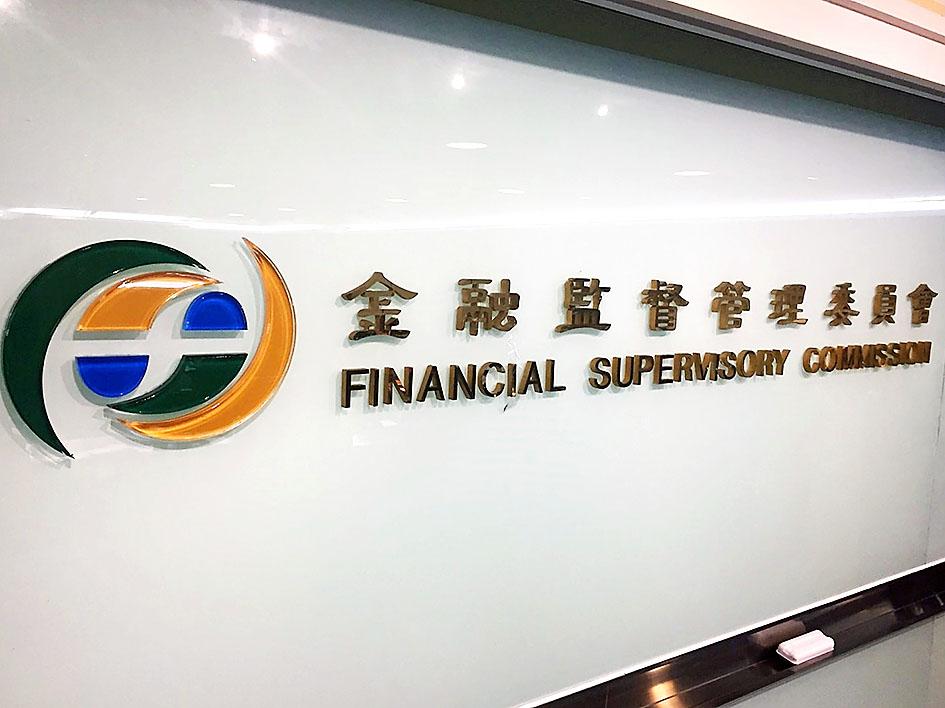The Financial Supervisory Commission (FSC) yesterday fined Citibank Taiwan Ltd (花旗台灣) NT$10 million (US$357,194) and DBS Bank Taiwan (星展台灣) NT$6 million for breaches of the nation’s anti-money laundering (AML) regulations.
The NT$10 million fine is the highest penalty that it has imposed on a domestic bank, the commission said.
Citibank Taiwan failed to set up a sound mechanism for evaluating clients’ risk of money laundering and for detecting suspicious transactions, Banking Bureau Deputy Director-General Huang Kuang-hsi (黃光熙) told a news conference in New Taipei City.

Photo: Kelson Wang, Taipei Times
The bank based its AML policies on those of its US-based parent company, Citigroup Inc, but the policies ignored transaction types specific to Taiwan that are suspected to be used for money laundering, Huang added.
As criminals in Taiwan mainly move money from Taiwan to China, Hong Kong, Macau and Southeast Asian countries, Citibank Taiwan should have highlighted these countries in its system, but it had not highlighted them because its parent company had not, Huang said.
Many of the bank’s corporate clients were one-person overseas companies that shared the same billing address and contact number, which was questionable, the commission said, adding that they might have been tax reduction arrangements for people related to each other.
Citibank Taiwan should have known the backgrounds of the one-person companies, but it did not — it had only labeled them as low or medium-risk clients, the commission said.
The bank’s mechanism for monitoring transactions was designed to exclude large deals, as it found it normal for big clients to have large transactions, but that goes against AML principles, which say that the larger the deal, the more scrutiny is needed, it said.
Once it detected suspicious deals, the bank did not investigate them well, as it ignored incidents when the scale of a client’s business did not match transaction amounts, failed to clarify the sources of funds and disregarded that sanctioned countries have higher risks, the commission said.
Citibank Taiwan also failed to set up a system to specifically monitor clients that were cryptocurrency exchanges, also a breach of AML regulations, it added.
DBS Bank Taiwan was penalized for similar breaches, the commission said.
DBS Bank Taiwan also had many clients that were one-person companies that shared billing addresses and contact numbers, and even though the bank had labeled them as high-risk clients, it did not take further measures to prevent potential money laundering, it said.

To many, Tatu City on the outskirts of Nairobi looks like a success. The first city entirely built by a private company to be operational in east Africa, with about 25,000 people living and working there, it accounts for about two-thirds of all foreign investment in Kenya. Its low-tax status has attracted more than 100 businesses including Heineken, coffee brand Dormans, and the biggest call-center and cold-chain transport firms in the region. However, to some local politicians, Tatu City has looked more like a target for extortion. A parade of governors have demanded land worth millions of dollars in exchange

An Indonesian animated movie is smashing regional box office records and could be set for wider success as it prepares to open beyond the Southeast Asian archipelago’s silver screens. Jumbo — a film based on the adventures of main character, Don, a large orphaned Indonesian boy facing bullying at school — last month became the highest-grossing Southeast Asian animated film, raking in more than US$8 million. Released at the end of March to coincide with the Eid holidays after the Islamic fasting month of Ramadan, the movie has hit 8 million ticket sales, the third-highest in Indonesian cinema history, Film

Taiwan Semiconductor Manufacturing Co’s (TSMC, 台積電) revenue jumped 48 percent last month, underscoring how electronics firms scrambled to acquire essential components before global tariffs took effect. The main chipmaker for Apple Inc and Nvidia Corp reported monthly sales of NT$349.6 billion (US$11.6 billion). That compares with the average analysts’ estimate for a 38 percent rise in second-quarter revenue. US President Donald Trump’s trade war is prompting economists to retool GDP forecasts worldwide, casting doubt over the outlook for everything from iPhone demand to computing and datacenter construction. However, TSMC — a barometer for global tech spending given its central role in the

Alchip Technologies Ltd (世芯), an application-specific integrated circuit (ASIC) designer specializing in server chips, expects revenue to decline this year due to sagging demand for 5-nanometer artificial intelligence (AI) chips from a North America-based major customer, a company executive said yesterday. That would be the first contraction in revenue for Alchip as it has been enjoying strong revenue growth over the past few years, benefiting from cloud-service providers’ moves to reduce dependence on Nvidia Corp’s expensive AI chips by building their own AI accelerator by outsourcing chip design. The 5-nanometer chip was supposed to be a new growth engine as the lifecycle